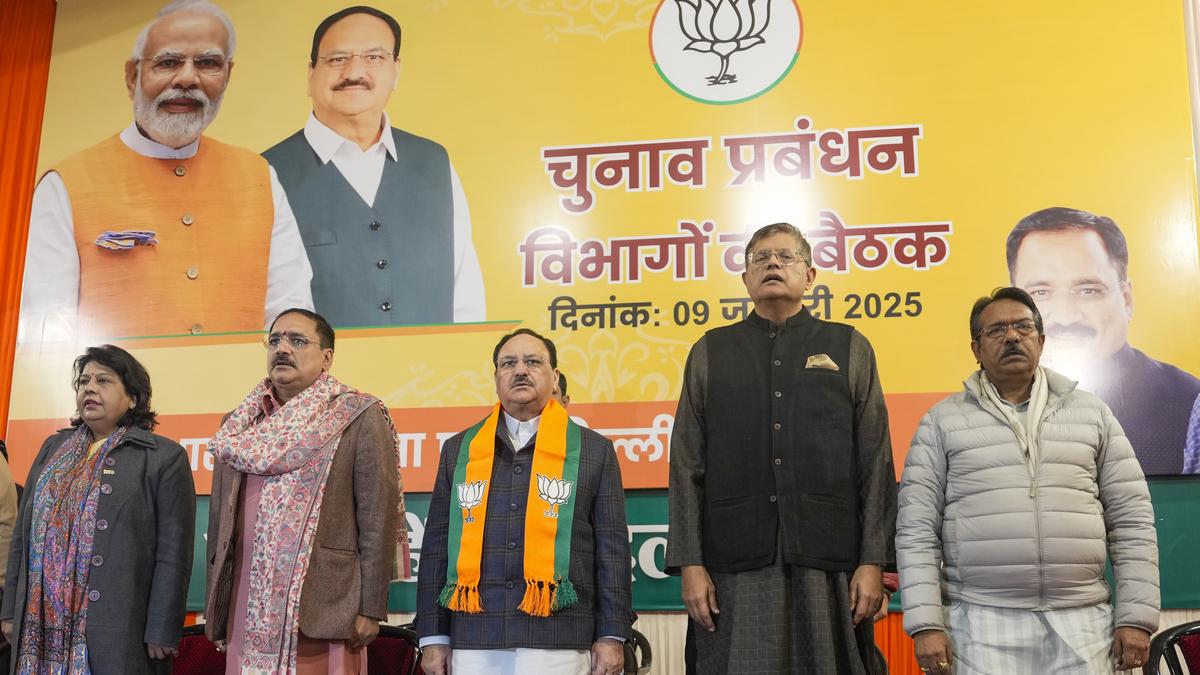 |
|
The resounding victory of the Bharatiya Janata Party (BJP) in the recent Delhi Assembly elections has sent ripples of jubilation through the party's ranks. Securing a commanding 48 out of 70 seats, the BJP's triumph marks a significant return to power in the national capital after a hiatus of over two decades. The scale of their victory, contrasted with the Aam Aadmi Party's (AAP) reduced tally of 22 seats and the Congress's complete failure to secure any seats, speaks volumes about the BJP's successful election strategy and the apparent shift in public sentiment. The post-election review meetings, initiated by the BJP's various poll committees, underscore the party's commitment to analyzing its success and identifying key factors that contributed to its triumph. This meticulous review process is a hallmark of the BJP's organized approach to electoral politics, highlighting their emphasis on strategic planning and efficient execution.
The meetings, held at the BJP's city unit office, brought together key figures from the party's leadership. Prominent attendees included the Delhi unit and poll in-charge Baijayant Panda, co-in-charges Alka Gurjar and Atul Garg, and city BJP president Virendra Sachdeva. The presence of Union minister Harsh Malhotra, convenor of the election management committee, further underscored the importance the party attaches to this post-election analysis. The discussions encompassed a wide range of topics, from the effectiveness of campaign strategies and grassroots mobilization efforts to the party's messaging and its resonance with the electorate. The insights gleaned from these discussions will undoubtedly inform the BJP's future strategies, both at the local and national levels.
The BJP's extensive network of over 40 election-related committees played a crucial role in orchestrating their campaign. These committees, responsible for various aspects of the election process, ranging from campaign management and logistics to voter outreach and communication, worked in tandem to ensure the smooth execution of the party's election plan. The post-election review served not only as a platform to celebrate the victory but also as a critical assessment of the performance of these committees. This feedback mechanism allows the BJP to identify areas of strength and weakness, fostering continuous improvement in their election machinery. The senior leaders' praise for the committees' contributions underscores the importance of teamwork and collaboration within the party's organizational structure. The success of the BJP's election campaign demonstrates the efficacy of their multi-pronged approach and the effectiveness of their well-defined organizational structure.
The BJP's victory in Delhi carries broader political implications. It signals a potential shift in the political landscape of the national capital, potentially impacting future political strategies for both the ruling BJP and the opposition parties. The significant margin of victory also reflects the BJP's success in connecting with the electorate, addressing their concerns, and presenting a compelling vision for the future of Delhi. The party's ability to effectively counter the AAP's strong hold on the city is a testament to their adaptability and strategic prowess. The post-election analysis is not merely an exercise in self-congratulation but also a crucial step in solidifying the BJP's position in Delhi and preparing for future electoral challenges. The lessons learned from this election will undoubtedly shape the party's strategies for upcoming elections, both in Delhi and across the country.
The Delhi BJP's triumph also serves as a case study for effective electoral strategies. The party's success in mobilizing voters, crafting a persuasive narrative, and effectively managing its resources provides valuable insights for other political parties. The meticulous planning and execution, as evidenced by the intricate network of committees dedicated to various aspects of the campaign, highlights the importance of a well-structured and coordinated approach to electoral politics. The ongoing review meetings signify a commitment to continuous learning and improvement, ensuring that the BJP remains a formidable political force in Delhi and beyond. The analysis of their victory will be closely studied by political analysts and strategists across the country, providing valuable lessons for navigating the complex dynamics of modern electoral politics. The BJP's win, therefore, transcends its immediate political context and holds significant implications for the future of Indian politics as a whole.
Source: BJP poll committees meet to discuss Delhi election result
